|
The ASH project closed on September 27, 2016. Scroll through the "ASH Updates" page to learn more about efforts from 2011-2016.
Join Dr. Rudi Thetard, ASH Project Director, Dr. Anne Detjen, Health Specialist at UNICEF, and experts from the TB and MNCH communities in a global debate on the linkages between tuberculosis and maternal and child health to:
It's free and easy to participate in the seminar:
Written by Sarah Konopka, Technical Director and HIV/AIDS Advisor for the ASH Project. This week, thousands of experts, advocates, policy makers, and researchers are gathering in Durban, South Africa for the 21st International AIDS Conference. The conference creates an essential space for the community to come together, reflect on our efforts, celebrate victories, learn from our mistakes, and commit – with renewed energy – to an evidence-based HIV and AIDS response that upholds the rights and dignity of all people living with HIV. While significant progress has been made in recent decades to advance access to treatment and prevent new infections, the burden of HIV and AIDS continues to weigh heavily on many countries in the African region. Groups most at risk continue to be disproportionately affected, and across the continent women and girls, men who have sex with men, transgender persons, sex workers, young people, and people who use drugs, are increasingly being left without access to prevention and treatment services. We must use this moment to establish a clear path toward guaranteeing that no one is left behind in the AIDS response and tailor HIV and AIDS research, policies, prevention, care, and treatment services to respond to their needs. "To maximize the benefits of collaboration and harness the cumulative impact of a joint and coordinated regional response, we must first understand each other. " African regional actors, including regional economic communities, networks and associations, and technical organizations, are natural, strategic allies in this effort. Their leadership and position in the region, where the effects of decisions are felt, makes them powerful partners in the HIV response. They can make substantial contributions to the development and harmonization of policies and guide the delivery of HIV and AIDS services in Africa. By elevating issues facing people living with HIV, regional networks and associations are powerful advocates and champions for improved policies and interventions. Regional level discussions among heads of state at high-level summits convened by regional economic communities emerge as signed commitments and declarations that influence national planning and implementation for HIV and AIDS services. Regional technical organizations, pooling local technical expertise, can assist in the operationalization of these commitments through evidence-based, technically sound approaches, while regional networks and associations can, in turn, monitor implementation and drive increased accountability for the HIV commitments they make.
To maximize the benefits of collaboration and harness the cumulative impact of a joint and coordinated regional response, we must first understand each other. Effective partnerships and coordination will ensure that African countries are better positioned to achieve an AIDS-Free Generation and end preventable child and maternal deaths. Be a part of the solution: take time to meet your neighbors, understand the landscape, consider how regional actors can enhance your work, and build strategic alliances. We must not lose momentum – the time to act is now. Learn more about how regional actors are working to address HIV and AIDS in Africa through the following resources, developed by USAID’s African Strategies for Health (ASH) project, implemented by Management Sciences for Health (MSH): Read about our successful partnerships with regional institutions to strengthen HIV services for key populations in Southern Africa
Are you in Durban? Stop by booth 328 to pick up ASH resources and meet MSH staff. Not in Durban? Follow live #healthsystem coverage of AIDS 2016 on MSH’s blog or on Twitter @MSHHealthImpact with hashtags #AIDS2016 #healthsystem #AIDSFreeGen and #EndAIDS2030. 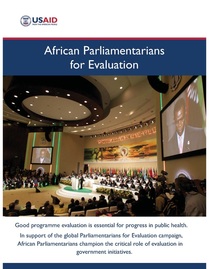 In partnership with USAID's African Strategies for Health (ASH) project and its South African partner, Khulisa Management Services, members of the Pan-African Parliament (PAP) have joined a global campaign calling for increased attention and leadership for health evaluation in Africa. Led by the Global Parliamentarian Forum for Evaluation, the Global Parliamentarians for Evaluation Campaign, promotes the use of and demand for high-quality evaluation capacities, essential for delivering progress in health and development across the continent. Read the brief: African Parliamentarians for Evaluation [Also in French, Portuguese, and Arabic] "There's no parliament that can work without research and evaluation," comments Hon. Rachel Shebesh, a member of Kenya's Parliament. "If you are working without research and evaluation, you might not be getting your priorities right, know whether your policies are working, or whether this is the development record you want to leave."
The video, Meeting the Needs of Urban Youth, tells the story of adolescents and service providers living in two slums in Nairobi, and explores issues around access to sexual and reproductive health (SRH) services in urban settings. Produced by ASH and partners, the African Population and Health Research Center (APHRC) and Management Sciences for Health (MSH), the video was recently screened at Viwandani and Korogocho, the two communities featured on the film. The events brought together adolescents, parents, teachers, and other community members in an open and honest discussion about solutions to improve access of SRH services in urban settings.
"Things are improving, according to many of the young people, both male and female, who say they find it easier to find family planning and to see health care providers. But some facilities are better than others, and some providers are more sympathetic and easier to talk to. Plus, the cost of the longer-acting methods of contraception remains out of reach for many." Read the full blog by APHRC's Communications Officer, Carol Gatura. As African countries adopt the Sustainable Development Goals and prepare to meet the ambitious targets for 2030, strong regional cooperation will become increasingly important to ensure commitments become action. USAID and the African Strategies for Health (ASH) project, led by MSH, invite you to a side session alongside the 69th World Health Assembly to discuss the role of regional actors in the African health sector and opportunities to leverage greater collective impact on health outcomes through strengthened collaboration and partnership between global, multilateral, regional, and country-level stakeholders. Watch the recorded discussion Wednesday May 25th | 9:00 am - 11:00 am | Geneva Press Club | Geneva, Switzerland Keynote Address Deputy Director General Dr. Laurent Assogba, West African Health Organization (WAHO) Session Moderator Dr. Olivier Raynaud, Senior Director for Health Systems Innovation and Strategy, Management Sciences for Health (MSH) Panelists
Closing Remarks Sarah Konopka, Technical Director, African Strategies for Health, MSH Browse our resources: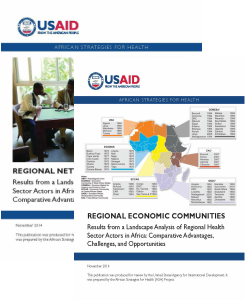 In support of the Harmonization for Health in Africa (HHA) initiative, ASH undertook a regional landscape analysis to enhance understanding of the role and contributions of regional bodies engaged in health in Africa. Read the reports, access an online database of more than 120 regional organizations working in health in Africa, and download technical briefs outlining the role of regional actors and their comparative advantages, challenges, and opportunities for addressing key health issues. >>Browse the online database >>Download the reports and technical briefs: 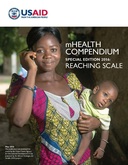 Join the African Strategies for Health (ASH) project at the Eighth Annual ICT4D Conference in Nairobi, Kenya. This year’s conference theme is From Innovation to Impact: Using Technology to Achieve the Sustainable Development Goals. Wednesday, May 18 16:30 - 17:30 Nairobi, Kenya Click here to add us to your ICT4D schedule ASH will co-host a participatory breakout session with the United Nations Foundation’s Digital Impact Alliance focused on the implementation of the Principles for Digital Development. The session will give implementers and supporters of digital health interventions the opportunity to discuss their experiences using the Principles for Digital Development as well as practical recommendations for improving adherence to the Principles. Featuring the mHealth Compendium Special Edition: Reaching Scale At the ICT4D conference, ASH will release the sixth and final edition of the mHealth Compendium Series, a special volume featuring case studies of programs that have moved mobile technologies for health to scale. More than 150 programs have been featured in the mHealth Compendium >> Access the online database to browse through the case studies. The African Strategies for Health project (ASH) will join thousands of policymakers, program implementers, researchers, and maternal health advocates from across the world at the 2016 Women Deliver conference in Copenhagen, Denmark. Join us for two interactive discussions. Accelerating African Union's Commitment to Women and Children Monday, May 16 10-11:30 AM Bella Center Room 178 The African Union and other regional bodies play a critical role in advancing health and development and holding governments accountable for national and regional targets across the African continent. Join ASH at the Women Deliver conference for an interactive, high-level discussion on the lessons and opportunities of the African Union’s Campaign on Accelerated Reduction of Maternal, Newborn, and Child Mortality in Africa (CARMMA). From Evidence to Action: Building Skills for Evidence-Based Maternal Health Advocacy
12.30 – 16.00 Bella Center Room 178 Hosted in collaboration with Management Sciences for Health (MSH) and Simavi, this engaging, interactive workshop will develop your skills as an effective advocate for maternal health. Working with exciting evidence that misoprostol is a safe & effective medicine to prevent & treat postpartum hemorrhage, the leading cause of maternal death, participants will develop advocacy strategies to promote policy change in support of misoprostol’s role in PPH. The video tells the story of youth and service providers living in two slums in Nairobi, documenting barriers to access to sexual and reproductive health services. Experts highlight opportunities to improve the health of youth living in impoverished conditions and call for stronger, integrated health services to meet the needs of young people in an increasingly urban Africa. The video was funded by USAID and produced by the African Strategies for Health project through its partners, the African Population and Health Research Center (APHRC) and Management Sciences for Health (MSH). Transport routes and road corridors along Southern Africa have facilitated trade, commerce, and regional infrastructure and supported the economic development and integration of the region. However, expanded mobility and cross-border trading are significant drivers in the transmission of communicable diseases and have contributed to increased HIV prevalence rates among key populations and communities living in the region. To support a strengthened and coordinated response to the unique public health challenges this presents, the Southern African Development Community (SADC), approved and released the Regional Minimum Standards and Brand for HIV and other Health Services along the Road Transport Corridors in the SADC Region (RMSB) in November 2015. The RMSB outline a minimum package of services and standards for service delivery to more effectively target high-risk geographic areas and key populations, such as long distance truck drivers and sex workers. The RMSB define roles, responsibilities, and management mechanisms to improve the quality and reach of current prevention and health services for HIV and other important health conditions, including tuberculosis, sexually transmitted infections, malaria, hypertension, diabetes, and sexual and reproductive health services including family planning. 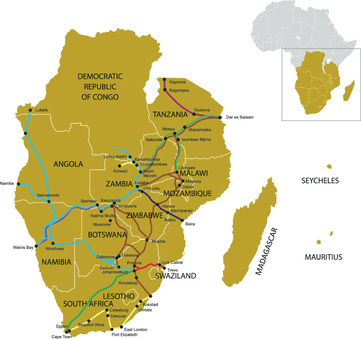 Transport routes in SADC Transport routes in SADC The standards are endorsed by Member State Ministries of Health and Transport, and represent collaborative partnership through a highly consultative process involving key stakeholders and technical experts from Member States, development partners, United Nations agencies, regional transport federations, worker groups, regional and national associations of sex workers, and implementing partners that provide health services to long distance truck drivers, sex workers, and communities living along road transport corridors in the region. Catalytic technical and financial support was provided in partnership by USAID's Africa Bureau and their project African Strategies for Health (ASH), and USAID's Regional HIV/AIDS Program and their project, Building Local Capacity for Delivery of HIV Services in Southern Africa (BLC), both implemented by Management Sciences for Health. |
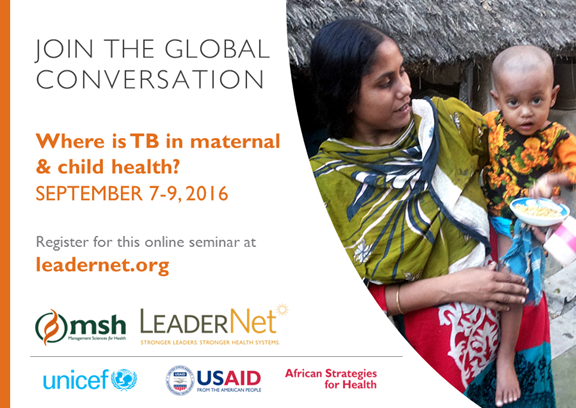
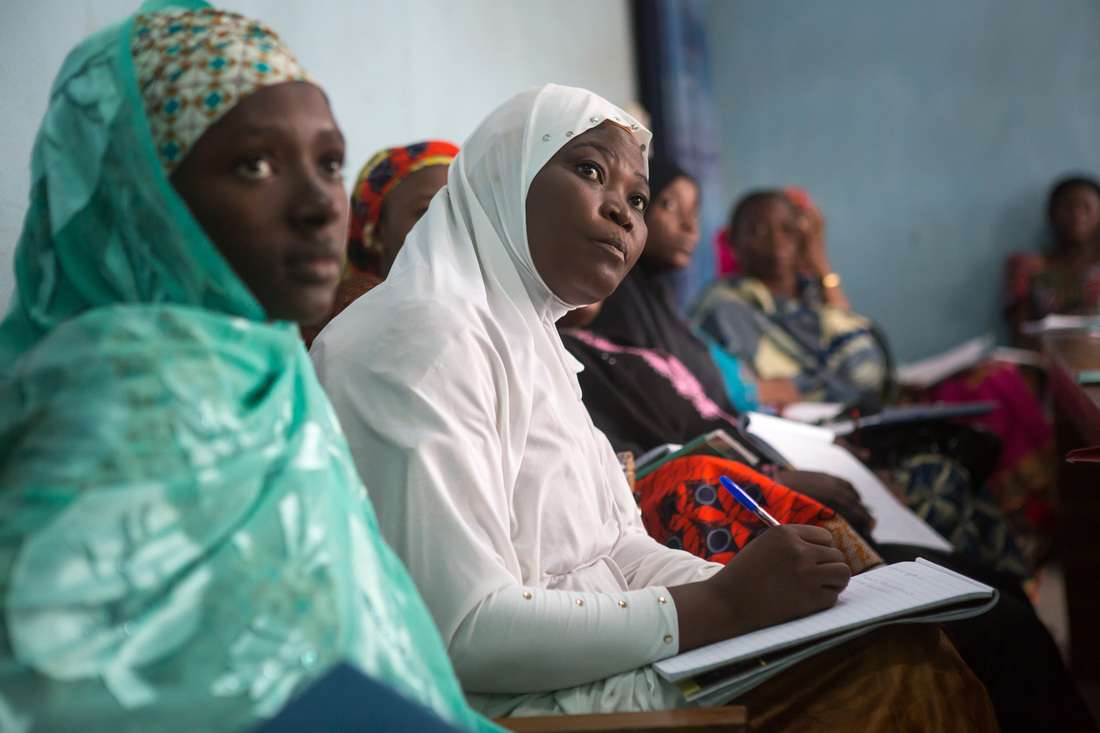
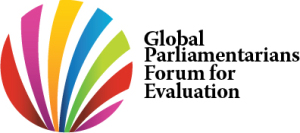
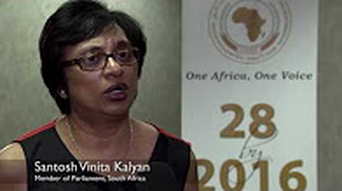
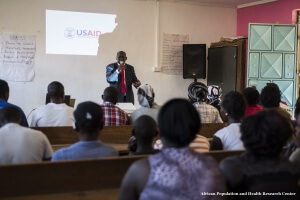
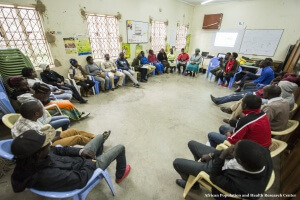
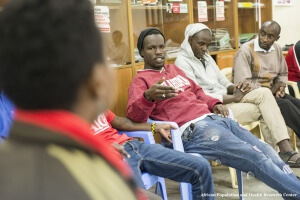

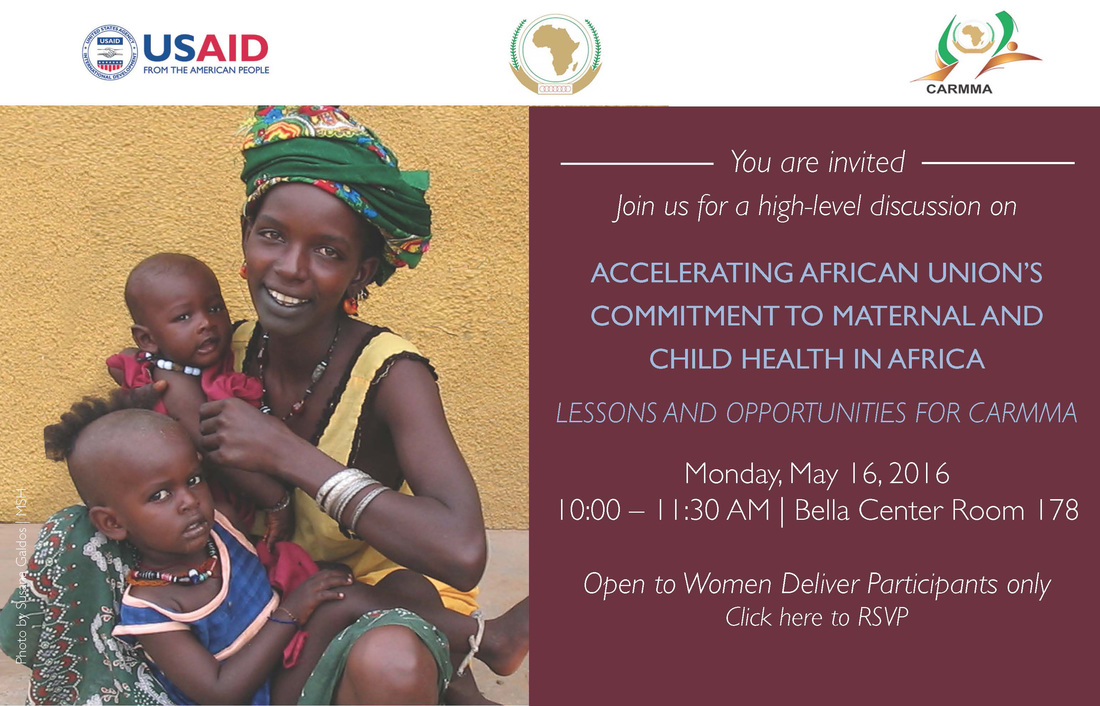
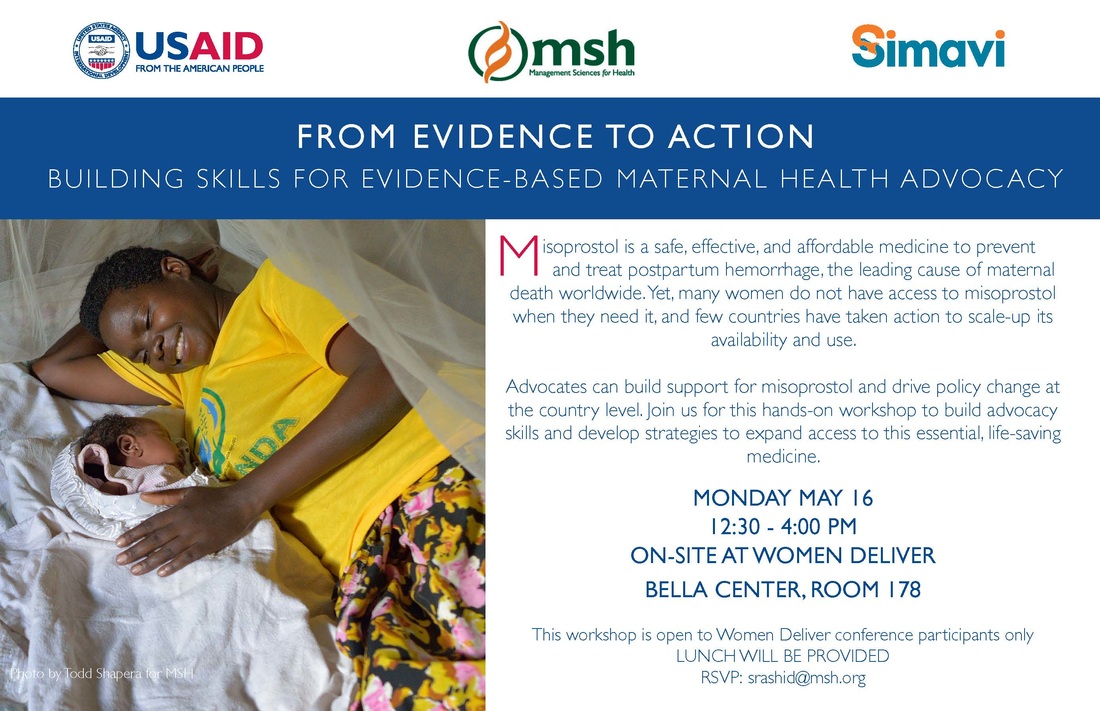
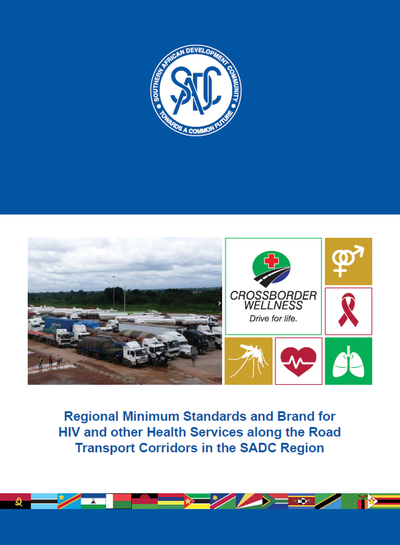
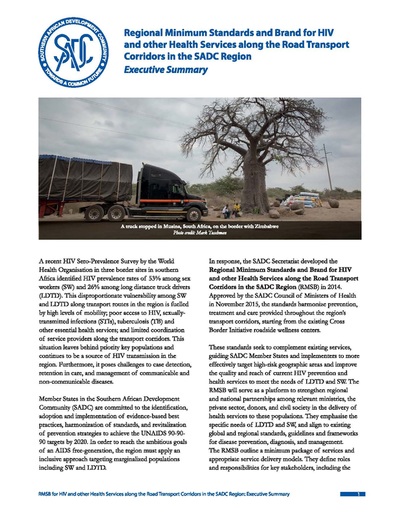
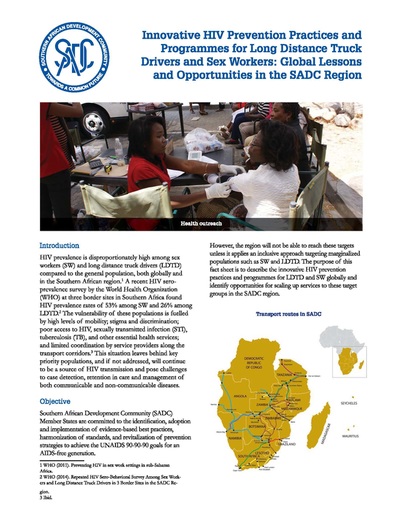
 RSS Feed
RSS Feed